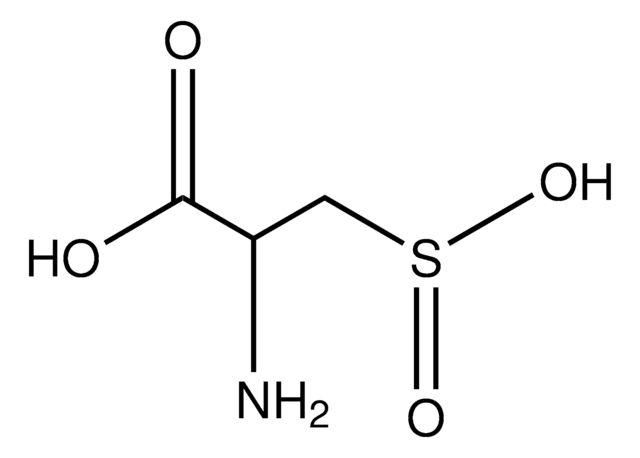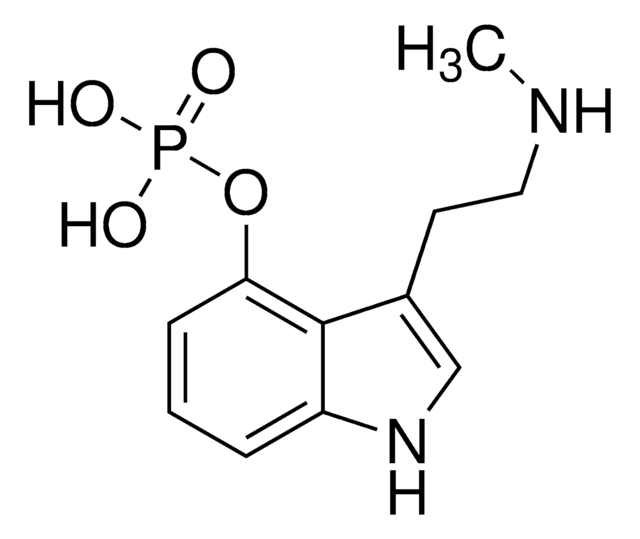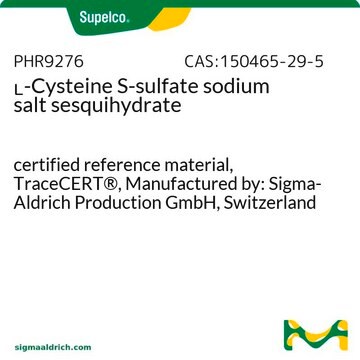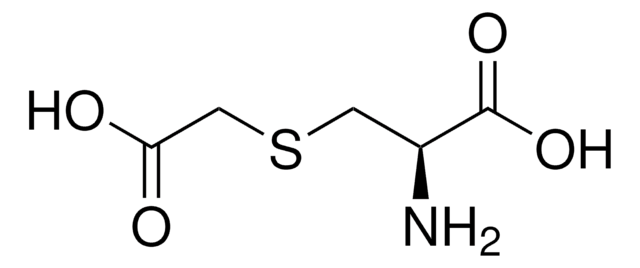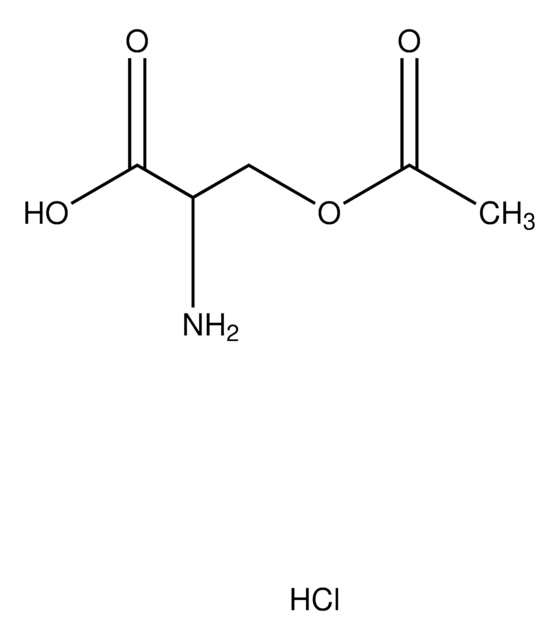C2196
L-Cysteine S-sulfate
≥98% (TLC), suitable for ligand binding assays
Sinónimos:
S-Sulfo-L-cysteine
About This Item
Productos recomendados
product name
L-Cysteine S-sulfate, ≥98% (TLC)
Quality Level
assay
≥98% (TLC)
form
powder
technique(s)
ligand binding assay: suitable
color
white
storage temp.
−20°C
SMILES string
N[C@@H](CSS(O)(=O)=O)C(O)=O
InChI
1S/C3H7NO5S2/c4-2(3(5)6)1-10-11(7,8)9/h2H,1,4H2,(H,5,6)(H,7,8,9)/t2-/m0/s1
InChI key
NOKPBJYHPHHWAN-REOHCLBHSA-N
¿Está buscando productos similares? Visita Guía de comparación de productos
Biochem/physiol Actions
Cysteine is one of the functional amino acids that are associated with growth, reproduction, maintenance and immunity. Cysteine is a source of disulfide linkage in protein and is associated with sulfur transport. At physiological pH, cysteine undergoes rapid oxidation to form cystine. Reduced availability of cysteine or cystine, influences leukocyte metabolism. L-Cysteine serves as a precursor for the rate limiting step in glutathione synthesis that occurs in neurons. It donates inorganic sulfate for detoxification reactions. Therefore, L-cysteine might be associated with neuroprotection. It is found to obstruct the entry of heavy metal ions across the blood-brain barrier into the brain. Increased levels of L-cysteine might lead to neurotoxicity.
signalword
Warning
hcodes
Hazard Classifications
Eye Irrit. 2 - Skin Irrit. 2 - STOT SE 3
target_organs
Respiratory system
Storage Class
11 - Combustible Solids
wgk_germany
WGK 3
flash_point_f
Not applicable
flash_point_c
Not applicable
ppe
dust mask type N95 (US), Eyeshields, Gloves
Certificados de análisis (COA)
Busque Certificados de análisis (COA) introduciendo el número de lote del producto. Los números de lote se encuentran en la etiqueta del producto después de las palabras «Lot» o «Batch»
¿Ya tiene este producto?
Encuentre la documentación para los productos que ha comprado recientemente en la Biblioteca de documentos.
Los clientes también vieron
Nuestro equipo de científicos tiene experiencia en todas las áreas de investigación: Ciencias de la vida, Ciencia de los materiales, Síntesis química, Cromatografía, Analítica y muchas otras.
Póngase en contacto con el Servicio técnico
